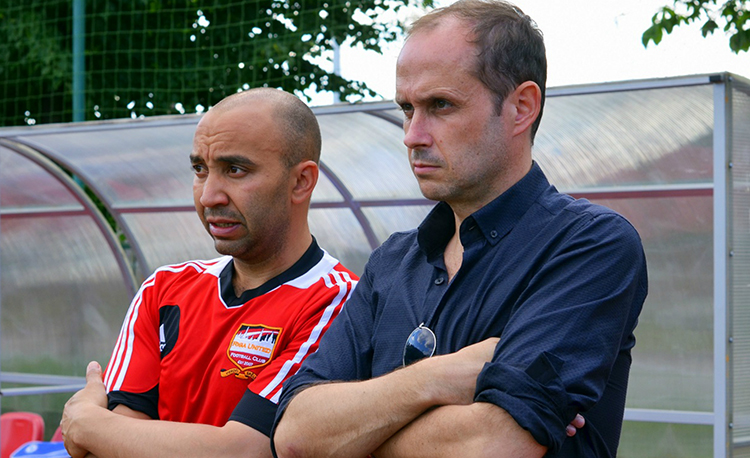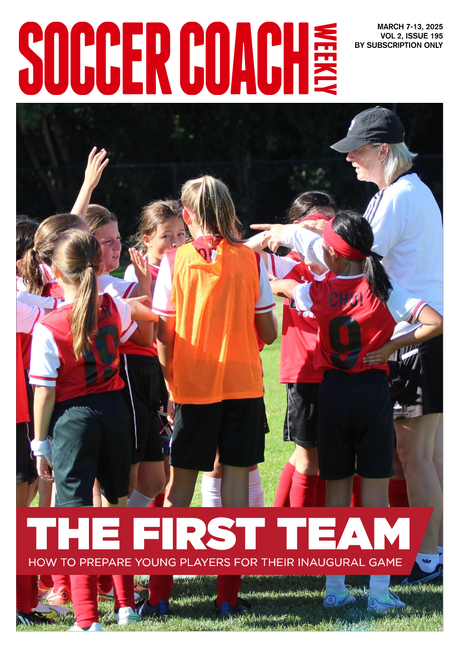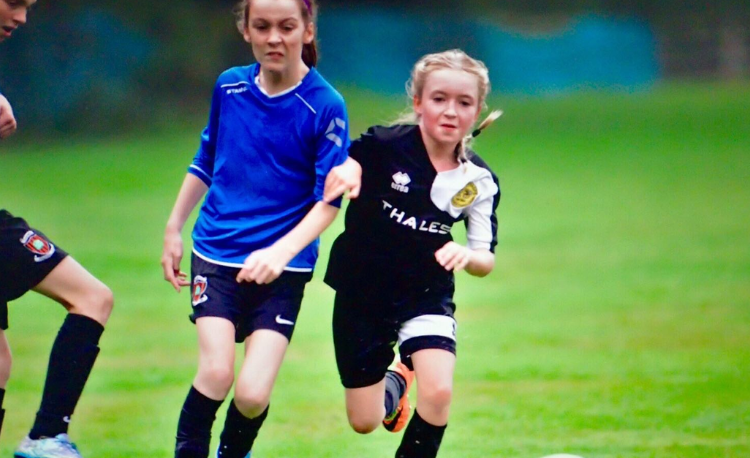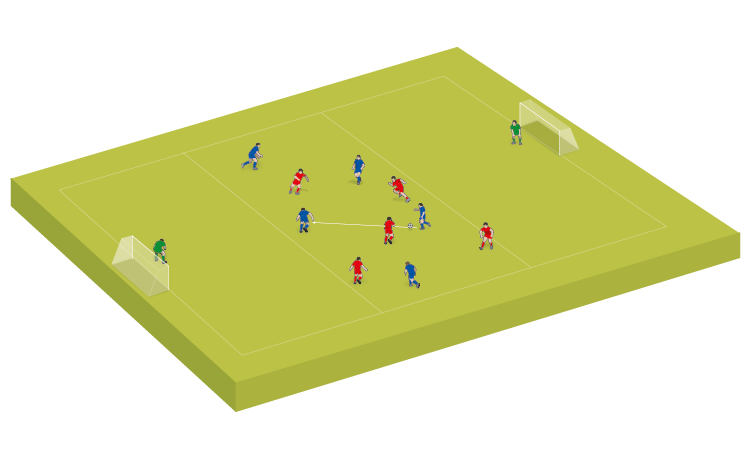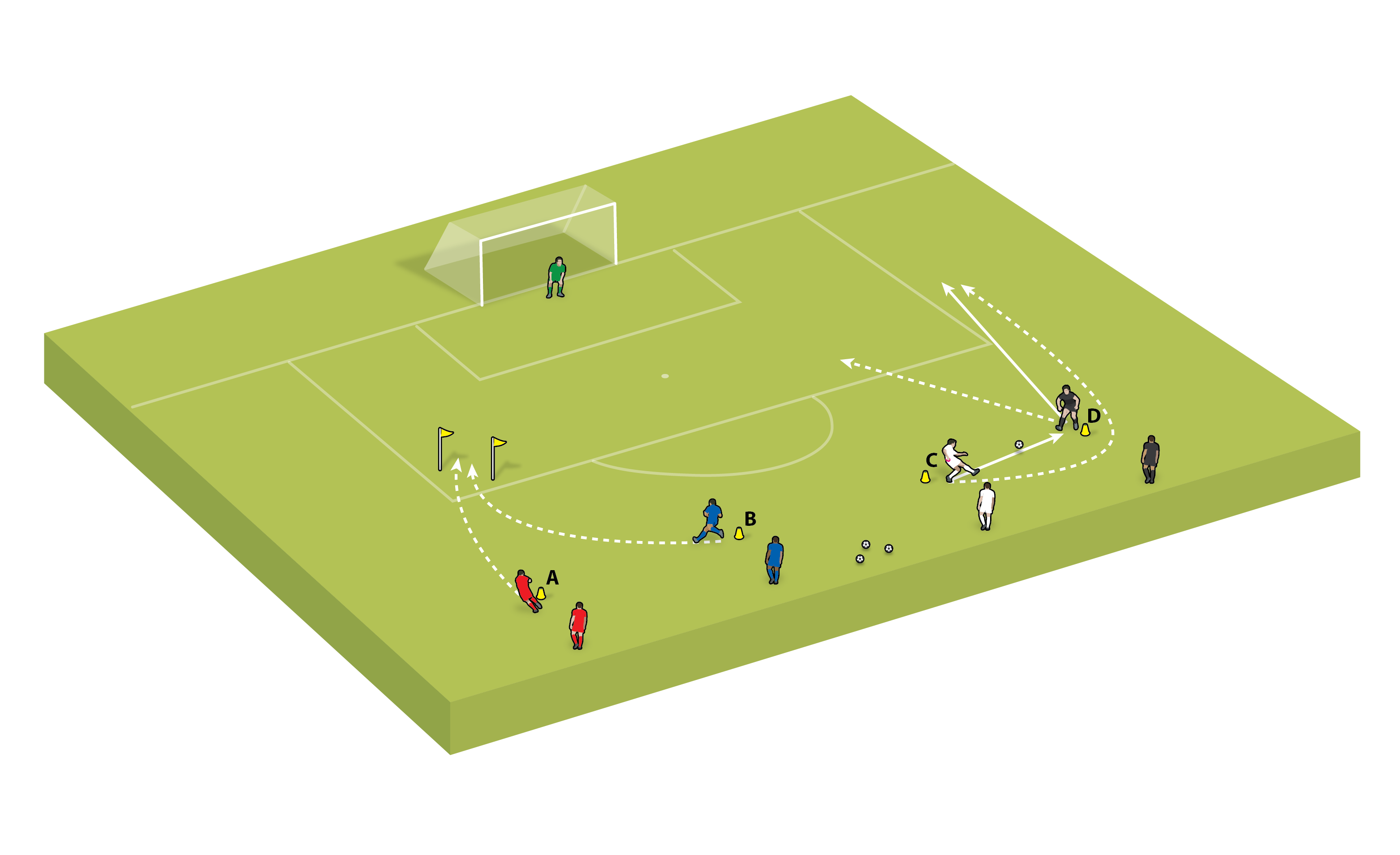Justin Walley: The travelling coach
From founding a team in Riga to managing Matabeleland at the CONIFA World Cup, Justin Walley recounts his unlikely world tour to Steph Fairbairn
Justin Walley’s soccer journey has, he says, been "very chaotic and very unintentional".
From being player-manager of his university team at the age of 18, to working at Euro 96 as assistant director for one of the host cities, Nottingham; and from founding and coaching Riga United in Latvia, to managing the team representing Matabeleland in Zimbabwe, Justin’s journey has been beyond what he could have ever envisaged. And he’s done it all with an FA Level 2 qualification.
SCW caught up with Justin to learn more about his journey, how he went about building a club from scratch, and his advice for other coaches…
SCW: Tell us a bit more about what you have built with Riga United...
JW: "Riga United was very much a friends kickabout. We played touring teams, some amateur teams, pub teams and a couple of semi-pro teams.
"Then, around the end of 2011, a group of us said, ’Can we be a bit more serious about this? Can we get into the league? Can we get into a national league?’.
"In early 2012, we started training at the best indoor facility in the country. We started training three times a week, our head coach was a Uefa B or USSF A qualified coach.
"We started taking it seriously. We started getting fitter, drinking less, smoked a bit less. We started to create a football team.
"In 2013, we entered the Second League (2. liga), which was the third tier. It was like a national league but with regions.
"The same year we created an academy. I think we started off with two or three youth teams, and eventually got up to about 10. And then by 2015, I created a ladies team. Again, that came organically.
"A Norwegian girl, a medical student, called and said, ’Do you have a football team [for women]?’. I said, ’Do you want to start one?’. She said, ’Yeah. I’ll ask around college’.
“We had our first training session, got 17 girls down - six of them were magnificent, technically. We created that out of nothing and within two years, we finished bronze medallists in the Premier League.
“In 2016, we had two ladies’ teams, two men’s teams, and 10 kids teams."
SCW: It sounds like you have built a culture and a community where people want to come and play. How important was that to you? How do you go about fostering that?
JW: "We created a lovely community. We were the only club in the Baltics that united the ethnically Latvian, ethnically Russian and the foreign communities. We had awards nights, end-of-season dinners, and AGMs.
"We were the only club that united the Latvian, Russian and foreign communities..."
“We got 200 people down to watch a ladies game. I think that was a time when Chelsea and Liverpool Ladies weren’t getting many more than that themselves.
“So we really tried to engage everyone. We went really heavy on social media - Facebook, particularly.
"We always used that to engage people, to tell people our story. We try to make it a lot of fun.
“I signed the journalist Tancredi Palmeri. He used to play for us many years ago and I signed him on the pitch at the San Siro to come back to us.
"He managed to get us a press pass to go on the pitch. It was a bit of fun, but all the Italian journalists at the San Siro were like, ’What’s going on?’. We got quite a lot of media attention in Latvia from that!
“We had the Eurovision Song Contest band from Latvia make a song with us, with a video. We just had a lot of fun with it. I think what we did was genuinely unique."
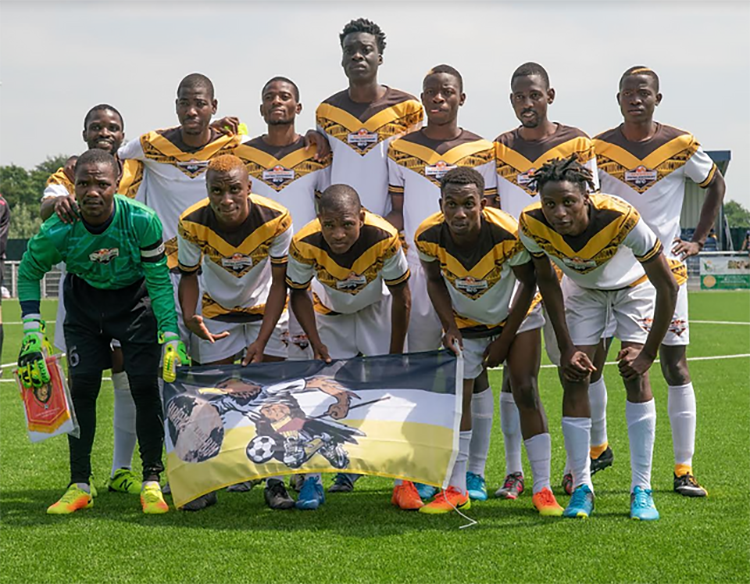
SCW: What was your coaching involvement with the club and how did that develop over time? What other coaching opportunities have you taken on?
JW: "I started off as assistant men’s coach under Jeffrey Young, who had the USSF A licence. At the same time, I was coaching in schools.
“When Jeff went to coach in China, the lads wanted me to take over, but I’d just created the ladies team and was coaching them at the time.
"I couldn’t do both so I turned down the men’s team, and focused on the ladies, because I thought there was the potential for us to really go far.
"If you won the league, you go into the [Uefa Women’s] Champions League and I thought we were capable of getting there. “We didn’t, we were the third best team in the country. But in terms of resources, we were competing with the leading club, which had maybe €250,000 a year in finance, whereas we had none. The fact we even pushed those teams was a big accomplishment.
“We had the women’s national player of the year in our team, so that was a very proud moment, and three of the girls played regularly for the national team.
“It got to the point where I was both coaching and helping to run many aspects of the club. I just got burnt out - I ended up in hospital. I don’t know how much of that was stress-related, or to do with how much I had on my plate.
“I made a decision at that point to walk away the following season. So my main involvement with Riga United kind of finished after I was ill.
"I made the decision to have a break from football in the back end of 2016, early 2017."
Related Files
SCW: How long did the break last? What reflection did you do on your involvement with soccer and how intense it can be?
JW: "Me and my girlfriend at the time went off to the Indian Ocean and did some backpacking, in Mauritius, Sri Lanka and Madagascar. It was amazing.
"I just thought, ’I don’t want to work in football anymore. It’s causing me too much stress. I love the game but I’m not wanting to watch on television, because I’m sick of it’.
“I tried to get involved in other things - I was trying to volunteer with elephants. It didn’t quite happen. I hit a few dead ends.
“Within four or five months, I decided I wanted to get back in football, but I wanted to have new ambitions in it.
"I came up with the crazy idea that I wanted to be a national team coach, despite not having the badges to be one. This is how I ended up being the national team manager of Matebeleland in 2017."
SCW: What was what was that like?
JW: "I’d been to Africa before, so that wasn’t so strange in itself, but going to live in Zimbabwe was - all the crazy stuff that was going on at the time.
"We had a military coup with [Robert] Mugabe taken out of power and I had a lockdown of sorts, lying low in somebody’s house for a few days, not knowing whether it was going to end up in civil war.
"I wanted to be a national team coach, despite not having the badges to be one..."
“There was a period where it was all about awareness and trying to raise money. That’s when we got CNN to do a documentary about us and [gambling company] Paddy Power help us with the kits. I got [former Liverpool and Zimbabwe goalkeeper] Bruce Grobbelaar involved.
“Then of course there was going to the tournament [the CONIFA World Cup, for non-Fifa states] - getting the money and the visas and ending up in [host city] London, which was just extraordinary.
"Once we got there, we knew we had succeeded. It wasn’t about winning the tournament, it was getting the lads to the CONIFA World Cup and sharing Matabele and Zimbabwean culture with the rest of the world.”
SCW: What would you be saying to anyone else starting out on their journey in coaching about where it can take them?
JW: "Badges are important. If you can, get them under your belt early.
“Take gambles, move abroad. A friend of mine, Tony McMullen, moved to Latvia a few years ago and now he’s the goalkeeper coach of Spartaks Jūrmala in the Latvian Premier League.
“I know three or four coaches who have gone abroad on a whim - they’ve turned up with a bag and are taking a huge risk, but they end up in an interesting little job and exciting opportunities come.
"The main thing is to be authentic and to enjoy it. The reality is that we just get pleasure and enjoyment out of the game.
"If that’s scoring a brilliant overhead kick down the park with your mates, that’s fantastic. If that’s coaching a Sunday League team and winning the league, that’s fantastic.
"Just enjoy it for what it is."
Newsletter Sign Up
Coaches Testimonials

Gerald Kearney, Downtown Las Vegas Soccer Club

Paul Butler, Florida, USA

Rick Shields, Springboro, USA

Tony Green, Pierrefonds Titans, Quebec, Canada
Subscribe Today
Discover the simple way to become a more effective, more successful soccer coach
In a recent survey 89% of subscribers said Soccer Coach Weekly makes them more confident, 91% said Soccer Coach Weekly makes them a more effective coach and 93% said Soccer Coach Weekly makes them more inspired.
*includes 3 coaching manuals
Get Weekly Inspiration
All the latest techniques and approaches
Soccer Coach Weekly offers proven and easy to use soccer drills, coaching sessions, practice plans, small-sided games, warm-ups, training tips and advice.
We've been at the cutting edge of soccer coaching since we launched in 2007, creating resources for the grassroots youth coach, following best practice from around the world and insights from the professional game.
